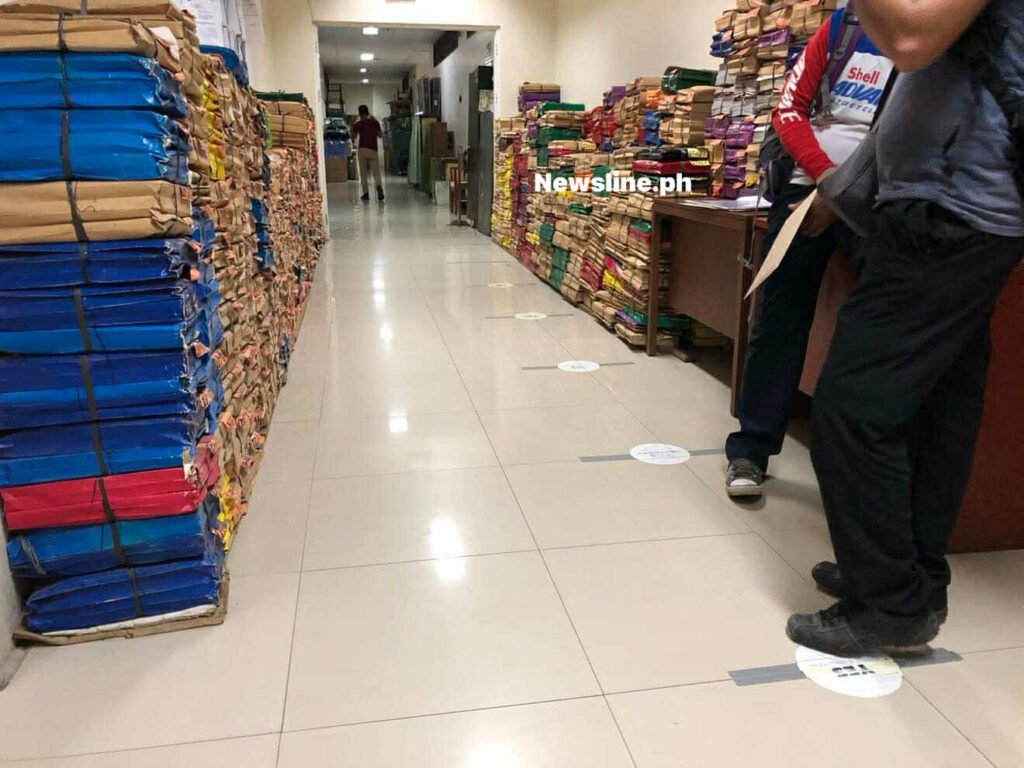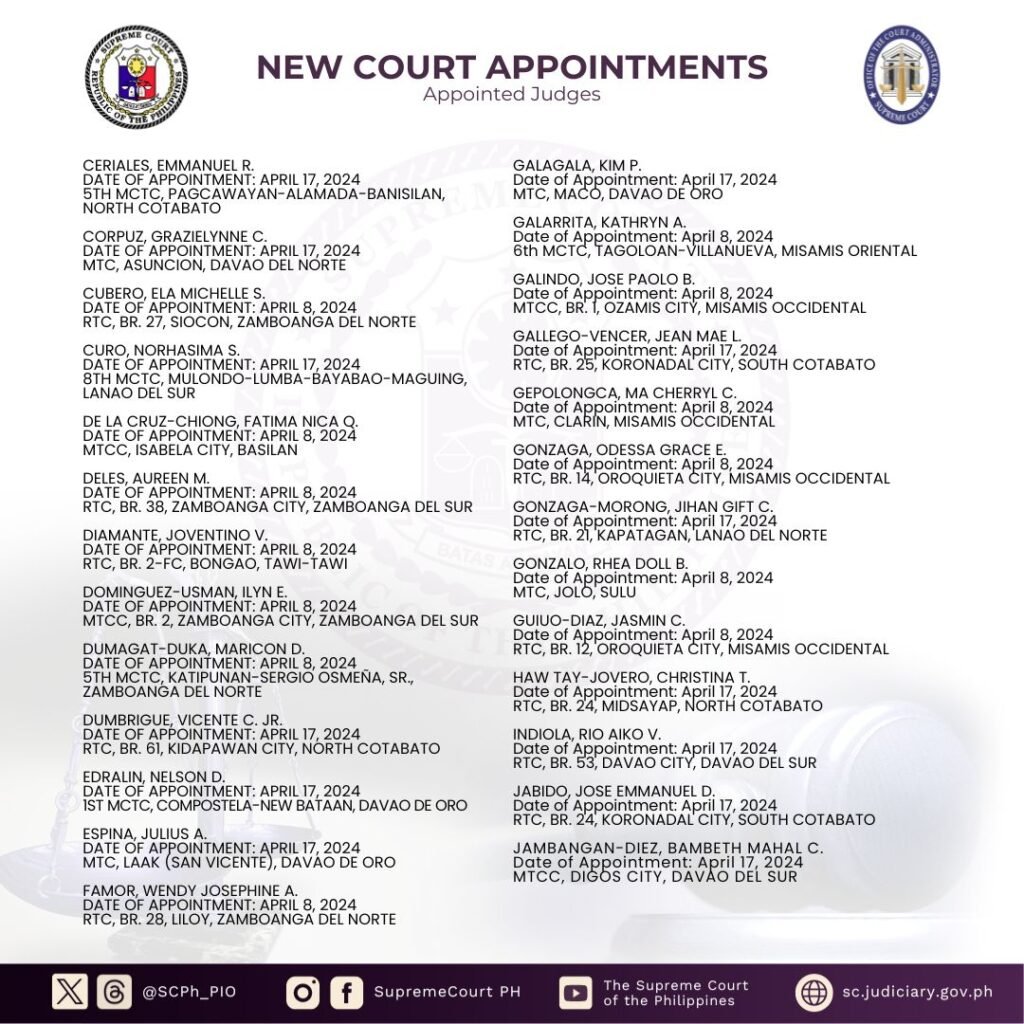
DAVAO CITY – The Supreme Court announced the appointment of 103 new judges to various trial courts in Mindanao on Friday, December 5. These appointees will serve in Regional Trial Courts (RTC), Municipal Trial Courts (MTC), Municipal Trial Courts in Cities (MTCC), and Municipal Circuit Trial Courts (MCTC) across the region.

President Ferdinand R. Marcos Jr. made the appointments to address long-standing vacancies caused by retirements or unfilled positions. The Office of the President forwarded the signed appointments to the Supreme Court, marking a significant move to improve judicial efficiency in Mindanao.
Of the newly appointed judges, 63 are women, showcasing a noteworthy increase in female representation in the judiciary.

The judges will serve areas such as Jolo in Sulu, Banisilan in Cotabato Province, Tawi-Tawi, Asuncion in Davao del Norte, Datu Paglas in Maguindanao, Alabel, and Kiamba-Maitum in Sarangani Province, among others.
These regions have long faced judicial backlogs due to prolonged vacancies, delaying justice for many residents. The new appointments aim to address these issues, particularly in underserved and remote areas.
Among the appointees is Judge Joy Bernales-Largo, a former prosecutor in Davao City and the wife of Court of Appeals Justice Roger Largo.
“It will help partly solve the vacancy rate in Mindanao courts. However, these newly appointed or promoted judges will need to undergo orientation and immersion before they can assume their judicial functions.” Leo Madrazo, Deputy Court Administrator for Mindanao, expressed optimism about the appointments.

Madrazo also highlighted a secondary challenge—judges promoted to RTC positions leave vacancies in their former posts:
“The selection and nomination process takes time, so while these appointments are a step forward, some gaps will remain,” Madrazo emphasized.
Mindanao comprises Regions 9 to 12, including the Bangsamoro Autonomous Region in Muslim Mindanao (BARMM) and the Sharia District and Circuit Trial Courts. Despite these appointments, several courts remain unorganized due to funding constraints from the Department of Budget and Management (DBM) or insufficient applicants for vacant positions.


